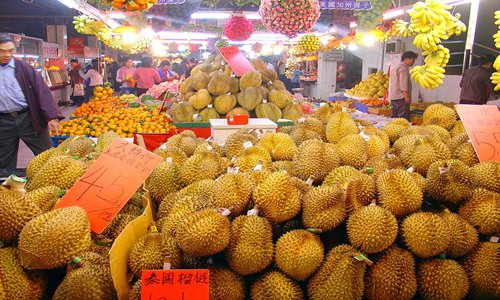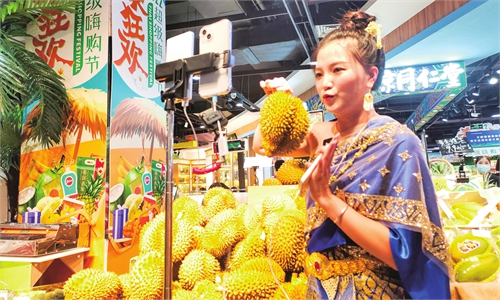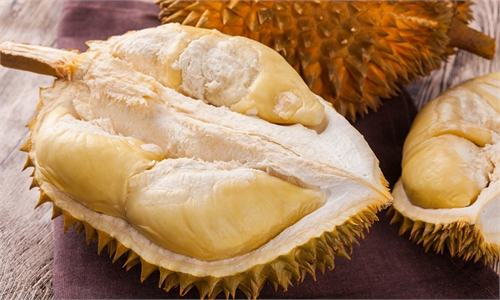
Local consumers pick up durian fruit at a supermarket in Guangzhou, South China's Guangdong Province. File photo: CFP
The Philippines' Department of Agriculture will expand the production of durian by training more local farmers, following the signing of an export agreement with China, a huge market that will bring massive opportunities, create jobs and increase incomes for local farmers, the Global Times learned from the Philippines' Department of Agriculture.
The Department is actively registering exporters and training growers of durian, officials from the High-Value Crops Development Program of the department told the Global Times in an emailed interview.
The department said that it has conducted personnel training on controlling pests and diseases that affect durian trees. More farmers in the Davao Region and neighboring regions and provinces will be trained to enhance their knowledge to ensure that high-quality fresh durians will be exported to China and other markets.
The department is identifying expansion areas for durian production and improving farmers' practices to increase production and meet the demand of overseas customers.
On January 4, the Philippines and China signed a protocol on exports of fresh durian, joining Vietnam and Thailand to provide fresh fruit to China.
The Philippines is an important exporter of agricultural products in Southeast Asia. According to the country's department of agriculture, about one-quarter of the country's employment in 2021 was in agriculture and the industry accounted for 9.6 percent of GDP.
According to an initial report from the department, the project is expected to generate at least 10,000 jobs.
"We expect more than 5.739 million kilograms of fresh durian to be exported to China per season," the agricultural department said.
According to Chinese customs data, China imported 821,500 tons of fresh durian in 2021. The industry estimates that imports remained at about 800,000 tons in 2022 despite the impact of COVID-19, Yicai.com reported.
In addition to durian, bananas from Myanmar and longan from Cambodia are among Southeast Asian fruits that have recently been approved for the Chinese market, bringing dividends to Southeast Asian nations.



